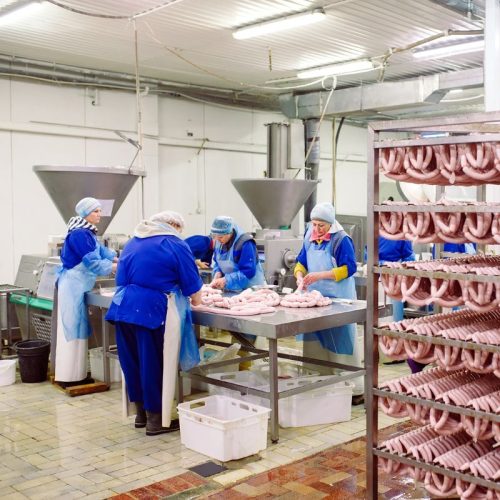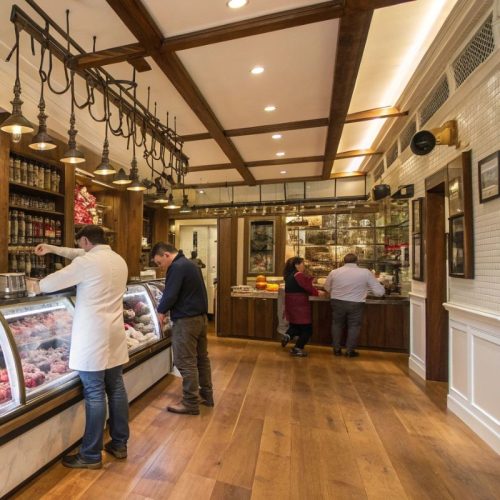When it comes to running a successful butcher shop, most people think first about the quality of the meat, the skill of the butchers, or the efficiency of refrigeration. But there’s one element that’s just as crucial — and it’s right under your feet.
Floor screeding plays a vital role in creating a safe, hygienic, and long-lasting environment for meat preparation. Without a properly screeded floor, even the best butchery setup can face problems with hygiene, safety, and maintenance.
Why Screeding Is Essential in Butcher Shops
1. Hygiene and Cleanability
A butcher’s floor is constantly exposed to organic materials, water, and cleaning agents. Uneven or cracked floors can trap blood, fat, and bacteria, becoming breeding grounds for contamination. A well-screeded floor ensures a smooth, seamless surface that’s easy to clean and disinfect — a cornerstone of maintaining food safety standards like HACCP compliance.
2. Durability Under Heavy Use
Butcher shops endure heavy foot traffic, rolling equipment, and constant temperature changes. An uneven or weak screed can crumble or crack, leading to expensive repairs. Professional screeding provides a strong, stable foundation that can handle mechanical wear, impact, and the weight of machinery like mincers and chillers.
3. Slip Resistance and Safety
A safe working environment starts with the floor. By combining screeding with appropriate floor coatings or finishes, butchers can achieve non-slip, water-resistant surfaces, reducing the risk of accidents in wet or greasy conditions.
4. Effective Drainage
In butcheries, floors are regularly washed down. Poor screeding can cause water pooling or improper drainage, leading to hygiene issues and damage over time. Skilled screeding ensures precise floor gradients, allowing water and cleaning solutions to flow efficiently toward drains — keeping the workspace clean and dry.
5. Temperature and Moisture Control
Screeds can be modified to resist moisture penetration or to integrate underfloor heating in certain areas. This makes them ideal for butcheries where temperature and humidity control are key to maintaining product quality.
Choosing the Right Screed for a Butcher Shop
Not all screeds are equal. For food-handling areas like butcheries, it’s important to choose materials designed for industrial hygiene environments, such as:
Polyurethane or epoxy screeds – for chemical resistance and durability.
Fast-drying screeds – to minimize downtime during renovations.
Anti-microbial screeds – to inhibit bacterial growth in high-risk areas.
A professional screeding contractor can assess your workspace and recommend the best system for your specific needs.
Summary
In butchery environments, the floor is more than just something to stand on — it’s a frontline defense for hygiene, safety, and efficiency. High-quality screeding ensures that your floors are smooth, sanitary, and built to last, helping you meet strict food safety regulations while maintaining a professional workspace.
If you’re setting up or refurbishing a butcher shop, investing in expert screeding isn’t an optional extra — it’s the foundation of your business.

Get a Quick Quote
Floor screeding commenced following consultation with the client and their design team. Interior Screed Group were then instructed to install to the ground floor, 1200g damp proof membrane with a 500g separating layer together with an 85mm thick C40 ultra-rapid drying fibre reinforced floor screed.
Utilising sand and cement floor screed we provided the contractor with the flexibility to to create micro falls therefore enabling us to easily marry up shop and rear entrance thresholds ensuring final floor finishes fitted perfectly.











Take a look at our most recent screeds
Follow our socials